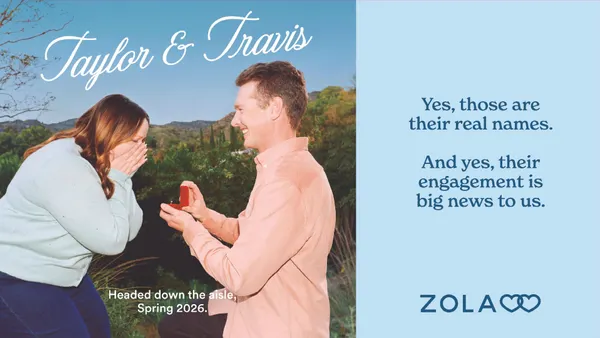Dive Brief:
- Plant-based beverage brand Silk has launched a campaign to establish "plogging" — a combination of jogging and picking up litter — as an event at the upcoming 2028 Los Angeles Olympic Games, according to a press release.
- The Danone brand is asking consumers and ploggers to sign a petition at Change.org urging the Los Angeles Organizing Committee to consider the sport. Silk is also inviting supporters to plog for Earth Day on April 22 and share photos of trash collected on social media using the hashtag #PlogForProgress.
- Silk's plogging initiative was spurred in part by the vision presented in the Los Angeles bid to make the 2028 Olympic event the most sustainable in modern history. Plogging started in Sweden and has been catching on worldwide, according to the company. The hashtag #plogging has been used more than 55,000 times on Instagram.
Dive Insight:
Silk is attempting to tie consumers' interest in the Olympic games into its intiatives around sustainability, including through a user-generated content push on social media ahead of Earth Day. The idea of plogging, which combines exercise and community service, could prove appealing to consumers who are expressing greater concerns about environmental issues like littering and pollution. The effort is just the latest in a growing list of examples of how marketers are trying to make cause-related marketing more central to their outreach strategies amid a rising demands for brands to be purposeful.
The Danone label is also not the first brand to leverage petitions in support of a curious cause. In more humorous examples, Oscar Mayer sought feedback on whether hot dogs were sandwiches and opened a call-in hotline, while Jimmy Dean prodded consumers to sign a petition to change the definition of sandwich to include breadless options. Carl's Jr. has also used Change.org to lobby for the dictionary status of the term "condimeat," which refers to applying meat, like bacon, as a condiment.
Consumers are taking efforts like Silk's more seriously, as 64% of surveyed global respondents will buy or boycott a brand because of its social or political position on an issue, according to Edelman's most recent Earned Brand study. Moreover, 53% of consumers believe that brands are more effective at solving social problems than government. Gen Z tends to feel especially connected to important causes, and more than two-thirds of the age group think brands should help them achieve those goals, PSFK research revealed.
Still, it is important not to overdo a purposeful brand message. Cause-related marketing that is too emotionally intense or that causes feelings of guilt can turn consumers into brand skeptics, research has found. As the chorus of cause-related initiatives grows, the more likely it becomes that consumers will look critically into why a brand is choosing to back a given issue. Accordingly, companies have to be cognizant of how their particular brand image pairs with their cause of choice.












